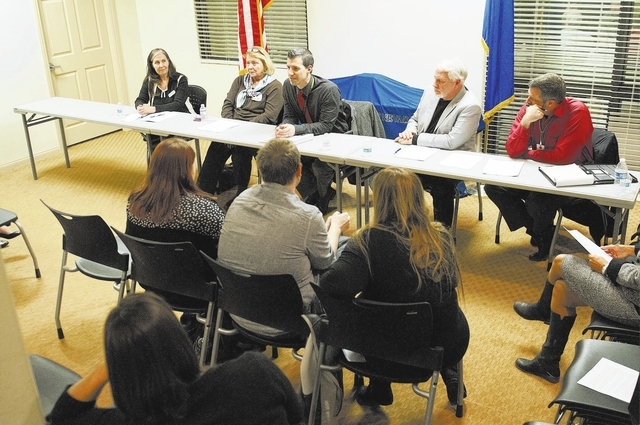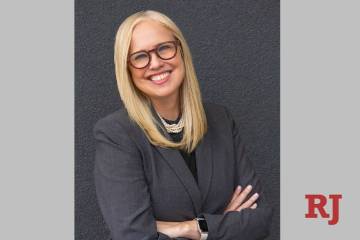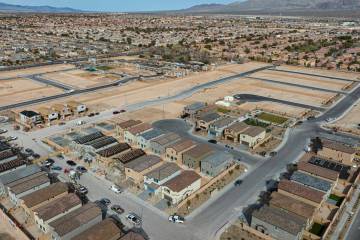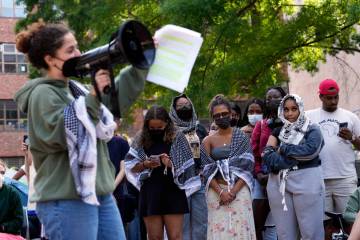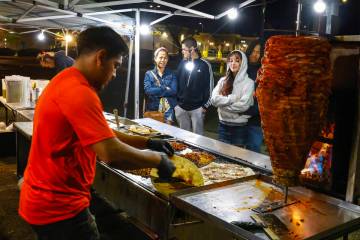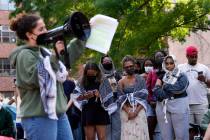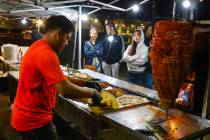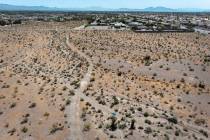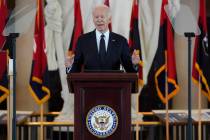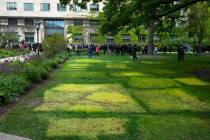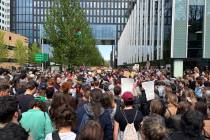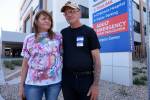Las Vegas teen describes experiences to panel on cyberbullying
With cuts across her arms and suicide on her mind, Jesse Dawson was finally ready to tell someone about the bullies who persecuted her for five years.
She lived in a small Nevada town for a year before moving to Las Vegas, but the bullies followed her through the Internet.
“They wouldn’t let me go,” she said Wednesday. “They had me in their clutches.”
Last year, Dawson was at risk for not graduating high school, with just one semester to go. Because of that, she found herself in a room with her parents and the staff of Las Vegas charter school Beacon Academy of Nevada. They wanted to know why she was “acting out.”
“I realized that moment was my chance,” said Dawson, an audience member who stole the show from a forum of panelists discussing cyberbullying Wednesday at Beacon, an online school near Flamingo Road and Tenaya Way.
The five panelists represented just about every perspective: school principal, psychologist, regional director of the Anti-Defamation League, and Las Vegas police with the child abuse and neglect detail.
But not the cyberbullied, not Dawson.
She unintentionally turned the tables Wednesday. The panel experts questioned the articulate 18-year-old audience member instead of answering questions from about 30 others in the audience.
Dawson told of how she reacted to the tormenting for being overweight, by sneaking out at night, fighting with her parents, acting out. Her parents didn’t ask what was wrong but told her to behave.
When she wouldn’t, they sent her to Las Vegas to live with her aunt and uncle. Dawson declined to name the school she attended.
Acting out is a common sign of being bullied, according to Las Vegas police officer Braden Schrag of Southern Nevada’s Counter Terrorism Center. He used to investigate cases of child abuse.
He recalled a 16-year-old girl regarded by school staff as a troublemaker. After a 45-minute conversation in which he mostly listened, the girl told him what was wrong, something no one had asked before, he said.
Schrag wouldn’t describe the nature of her abuse but said “whatever is the worst you could think of is probably right.”
The point is, Schrag said, she was acting out for a reason.
“Don’t look at it as a negative behavior,” he said. “It could be a cry for help.”
But the focus Wednesday was on being less reactive to bullying and raising awareness about something many adults don’t fully understand: bullying and cyberbullying.
“We need to talk about this; we need to talk frequently,” said Beacon Principal Susan Waters, noting how cyberbullying can be more vicious than physical abuse. “Cyberbullying can take on a life of its own.”
Dawson recounted how the friends of bullies joined the online attack against her.
The positive is that physical bullying, once deemed a rite of passage, is less socially acceptable among children or adults, said Sgt. Joshua Bitsko with Las Vegas police’s abuse and neglect detail.
But online, children often don’t see the harm, or feel more empowered to bully, he said.
That’s where the culture needs to change, Schrag said.
“Parents say, ‘Not my kid,’ ” he said. “Any kid is susceptible to being bullied or being a bully.”
The difference now is it doesn’t just happen at school. It happens at home when children are seemingly alone on their computers or phone.
“I always knew at home I had a safe place,” Bitsko said of his younger years.
Dawson’s bullies kept her close, though they were many miles away. They would argue with her on Facebook and tell her to cut herself or kill herself. Once aware, the school provided Dawson with free counseling. She also stopped reading or responding to the messages.
“That block button was a godsend,” she said.
Contact reporter Trevon Milliard at tmilliard @reviewjournal.com or 702-383-0279.



